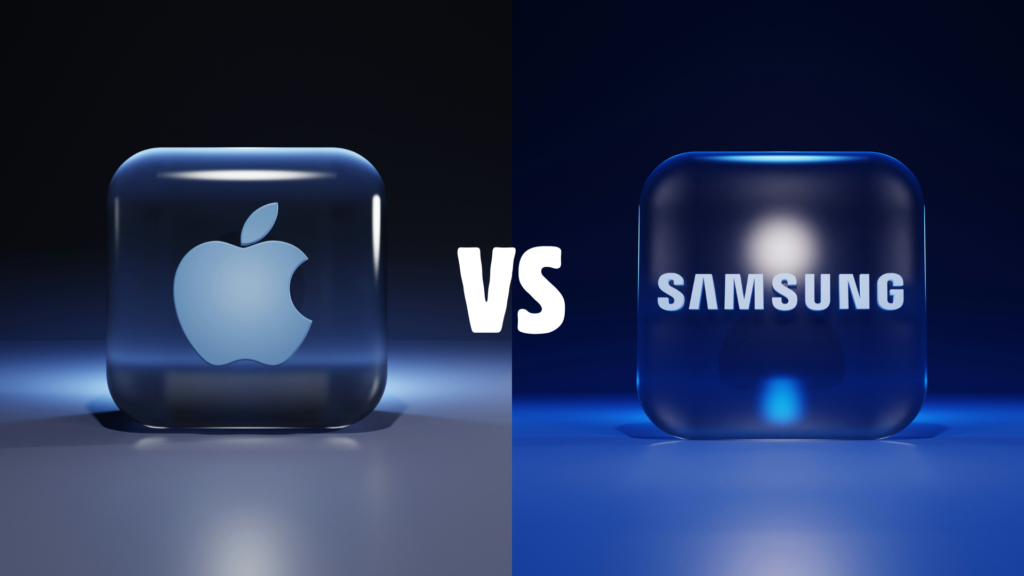In the current digital era, personal data has transformed into a significant asset. As a result, the demand for effective privacy measures has become increasingly vital. Companies are now under pressure to safeguard user information, especially as data breaches and privacy violations frequently make headlines. In this context, Apple’s “Privacy on iPhone” ad campaign, launched in 2022, emerges as a compelling declaration that prioritizes user privacy in the tech industry.
The advertisement employs a creative narrative set in a mock auction. Here, an auctioneer attempts to sell a woman’s personal data, including her emails and location. This striking imagery effectively illustrates the alarming reality of data tracking. As the auction unfolds, audience members begin to vanish, symbolizing the loss of trust when personal information is compromised. This powerful visual metaphor resonates with viewers and encourages them to reflect on their own data security.
Furthermore, Apple’s campaign serves as a critique of competitors like Facebook and Google. These companies have faced scrutiny for their data collection practices. By contrasting its approach with that of its rivals, Apple positions itself as a leader in consumer privacy. The introduction of features like App Tracking Transparency emphasizes this commitment, allowing users to control which apps can access their information. This shift not only enhances user trust but also sets a new standard for privacy in the tech sector.
Ultimately, Apple’s “Privacy on iPhone” ad campaign highlights the importance of protecting personal data in an increasingly connected world. By raising awareness about privacy issues, Apple reinforces its reputation as a champion of consumer rights. This campaign not only engages audiences but also sparks essential conversations about the future of data protection in technology.
The Power of Storytelling
The “Privacy on iPhone” advertisement utilizes a captivating storytelling method to effectively communicate its message. Set in a mock auction house, the ad features an auctioneer who attempts to sell a woman’s personal data. This data includes sensitive information such as her emails, location, and browsing history. As the auctioneer reveals each item, the audience begins to vanish, which symbolizes the critical need for protecting personal information from unwanted scrutiny.
This creative narrative not only captures viewers’ attention but also highlights the widespread issue of data tracking in today’s digital environment. By presenting a relatable scenario, Apple makes a complex subject more understandable for a diverse audience. The striking visuals and engaging storyline ensure that the message resonates with viewers, prompting them to consider their own privacy concerns.
Moreover, the ad serves as a powerful reminder of the implications of sharing personal data. It challenges consumers to reflect on how much information they unknowingly give away in their daily lives. By framing privacy as a crucial issue, Apple successfully positions itself as an advocate for user rights, contrasting its approach with that of its competitors.
Apple’s use of storytelling in the “Privacy on iPhone” ad is both innovative and impactful. By transforming a serious topic into an engaging narrative, Apple not only raises awareness about privacy issues but also reinforces its commitment to protecting user data. This approach fosters a deeper understanding of privacy among consumers and encourages them to take control of their personal information.
Challenging Industry Norms
Apple’s “Privacy on iPhone” advertisement directly challenges the data collection practices of major competitors like Facebook and Google. These tech giants have faced significant criticism for their unclear policies and extensive data gathering. Often, this occurs without users fully understanding or consenting to the extent of the tracking involved. In contrast, Apple presents itself as a defender of consumer rights, emphasizing its commitment to user privacy through this campaign.
The introduction of the App Tracking Transparency feature in iOS 14.5 exemplifies Apple’s dedication to privacy. This feature mandates that apps must seek permission before tracking user data across different platforms. Consequently, this move has been recognized as a crucial step toward empowering users. It also holds app developers accountable for their data practices, fostering a culture of transparency in an industry often marked by hidden agendas.
Moreover, Apple’s stance on privacy has significant implications for its competitors. Facebook, which relies heavily on tracking user behavior for targeted advertising, has expressed concerns about the impact of these changes on small businesses. However, many users appreciate the increased control over their data. This shift in perspective highlights a growing awareness among consumers regarding privacy issues and the importance of informed consent.
Ultimately, Apple’s “Privacy on iPhone” ad not only promotes its products but also initiates a broader conversation about data ethics in technology. By prioritizing user privacy and challenging industry norms, Apple is reshaping the landscape of digital advertising. This campaign serves as a powerful reminder that consumers deserve greater control over their personal information in an increasingly connected world.
Building Trust and Loyalty
Apple has successfully built a strong sense of trust and loyalty among its users by prioritizing privacy. By taking a firm stand against invasive data collection practices, the company has distinguished itself in a crowded market. The “Privacy on iPhone” ad campaign further enhances this perception, positioning Apple as a reliable and ethical choice. In an industry often marred by privacy scandals, this commitment resonates deeply with consumers.
This trust translates into several tangible benefits for Apple. For instance, it leads to increased customer retention and fosters a positive brand image. As more consumers recognize the importance of data privacy, they are more likely to choose Apple products over competitors. This growing awareness makes Apple’s commitment to user privacy a powerful differentiator in their purchasing decisions.
Moreover, the emotional connection that Apple cultivates with its customers contributes significantly to brand loyalty. Users feel valued and secure when they know their personal information is protected. This feeling of safety encourages them to remain loyal to the brand and continue purchasing Apple products in the future.
Apple’s focus on privacy not only builds trust but also enhances customer loyalty. As consumers become increasingly aware of data privacy issues, Apple’s commitment serves as a critical factor in their buying choices. By maintaining this focus, Apple continues to strengthen its position as a leader in the tech industry while fostering lasting relationships with its users.
The Ripple Effect
Apple’s “Privacy on iPhone” ad campaign has the potential to create a significant ripple effect across the tech industry. By raising awareness about critical data privacy issues, Apple’s campaign may inspire other companies to prioritize user privacy in their products and services. Moreover, the success of this campaign could lead to increased regulatory scrutiny and the implementation of stricter data privacy laws.
As consumers become more vocal about their concerns, they demand greater transparency and control over their personal information. Consequently, policymakers may feel compelled to take action and hold tech companies accountable for their data practices. This shift in consumer attitudes and regulatory landscape could have far-reaching implications for the tech industry as a whole.
Apple’s campaign showcases the benefits of responsible data practices and encourages a more ethical approach to data collection and usage. By positioning itself as a champion of user privacy, Apple sets a new standard for the industry. Other companies may feel pressure to follow suit in order to maintain consumer trust and remain competitive in the market.
Furthermore, the success of Apple’s campaign could lead to a broader cultural shift towards data privacy. As more people become aware of the importance of protecting their personal information, they may demand similar privacy features from other tech companies. This increased awareness and demand for privacy could drive innovation and push the industry towards more ethical and transparent data practices.
Conclusion
Apple’s “Privacy on iPhone” ad campaign marks a pivotal moment in the ongoing fight for data privacy. By employing innovative storytelling and taking a strong stance against invasive data collection, Apple has effectively captured the attention of both consumers and industry leaders. This campaign not only highlights the importance of user privacy but also sets a benchmark for other companies to follow.
As the technology landscape evolves, user privacy will undoubtedly remain a critical concern. Companies that prioritize data protection and demonstrate a genuine commitment to safeguarding customer information will be well-positioned for success. This trend is particularly important as consumers become increasingly aware of their privacy rights and seek brands that align with their values.
Moreover, Apple’s campaign serves as a catalyst for broader conversations about data ethics in the tech industry. By advocating for transparency and responsible data practices, Apple encourages other companies to adopt similar measures. This shift could lead to enhanced regulatory scrutiny and the implementation of stricter privacy laws, ultimately benefiting consumers.
In conclusion, Apple’s “Privacy on iPhone” campaign is not just an advertisement; it is a powerful statement about the importance of data privacy. By effectively communicating this message, Apple inspires positive change within the industry. As more companies recognize the value of prioritizing user privacy, we may see a significant transformation in how personal data is handled across the tech landscape.




